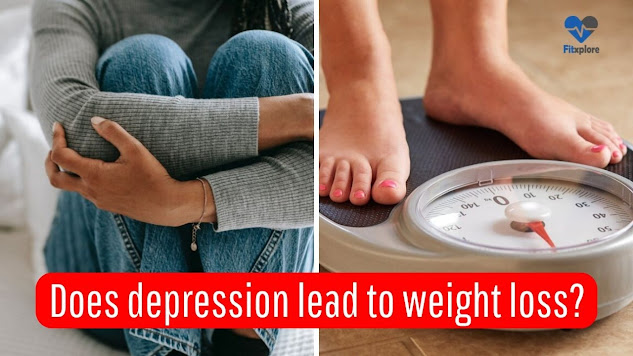Depression is a serious mental illness that can have a profound impact on an individual’s health. One of the potential consequences of depression is weight loss.
While it is not clear if depression directly causes weight loss, there is a strong association between the two. Individuals who are depressed may lose interest in food and lose their appetite. This can lead to weight loss. Depression may also cause changes in metabolism, which can also lead to weight loss.
In some cases, medications used to treat depression can also cause weight loss. While weight loss can be a symptom of depression, it is important to remember that not everyone who is depressed will experience weight loss.
It is complicated to smile when we want to lose weight and we can't. It is actually frustrating and we understand it perfectly.
However, it is possible to smile our attitude and mentally prepare ourselves to lose weight.
The mind plays an important role in losing weight. If we order our subconscious to help us lose weight, of course, we will do it. The attitude of being positive is everything and helps a lot.
We all know that depression affects the way a person feels, thinks, and behaves, and can cause a variety of emotional and physical problems. One of the physical issues caused by this disorder is weight loss.
Medical weight loss is defined as a decrease in total body weight due to the average loss of fluid, fat or adipose tissue, and/or lean muscle, i.e., mineral deposits in the bones, muscles, tendons, and other connective tissues. Weight loss may be involuntary due to malnutrition or underlying conditions such as depression. Research has shown that there is a strong link between a person's diet and his or her mental state. Some people become depressed, usually because they are overweight, rarely because they are underweight; it has also been shown that depression usually results in weight gain and often weight loss.
This is essentially similar to the chicken-and-egg phenomenon. In severe depression, weight loss may occur because there is a loss of interest in eating, which in turn is caused by a loss of interest in pleasure. Loss of hope, status or social ties, and emotional distress can lead to depression, which in turn may be related to an eating disorder. If depression affects your sleep, it can help you lose weight even if you eat a lot.
In February 1997, a report published in the Journal of the American Dietetic Association stated that you consume more calories when you are awake than when you sleep, and that if you are depressed, you are likely to sleep worse and therefore indirectly consume more calories.
It was also thought that the new antidepressants known as selective 5-hydroxytryptamine reuptake inhibitors, or SSRIs, might promote weight loss in older people. However, the study found that these widespread assumptions about antidepressants and weight change are not fully supported by scientific research. Side effects of SSRIs include insomnia, stress, anxiety, and diarrhea. Stress and anxiety, like insomnia, can cause you to burn more calories overall and lose weight as a result. Diarrhea can cause weight loss because your body cannot get energy and nutrients from the food you eat.
Depression can be the cause of weight loss, but it is also possible that depression is masking the symptoms of another health problem that is causing weight loss. If a friend or family member is losing a lot of weight from overeating and is showing signs of depression, you should be concerned about bulimia. This eating disorder, also known as bulimia, is characterized by binge eating followed by vomiting. Other disorders, such as anorexia nervosa, may also be accompanied by weight loss.
I'm Losing Weight Due to Stress - What Can I Do?
Therefore, if you are depressed, not only do you find it difficult to carry out normal daily activities or feel that life is not worth living, but you are also at high risk of losing weight. If you have been diagnosed with depression and are experiencing symptoms of weight loss, you should see your doctor.
Some Keywords:
eating, cited, mood, obesity, anxiety, aug, re , antidepressants, eat, learn, depressive, jun, dec ,obese exercise, study, medication, excess, disorders, healthy, jul, diets, treatment, studies, relationship, surgery, major, diagnostic, taking, adults, new, think, hand, related, seasonal, different, patients, include, well, cortisol, get, first, others, sadness, poor, mar, foods, linked, manage, statistical, manual, antidepressant, lack, including, effects, certain, increase, low, affective, hormones, reduced, metabolic, connection ,levels, motivation, effect, significantly, triggered, chronic, many, increased,affect, family, sleeping, patterns, better, jan, gain, people, diet, often, overweight, body, conditions, long, among, unintentional, without, changing, though, improve, necessarily, sep, make, always, lost

